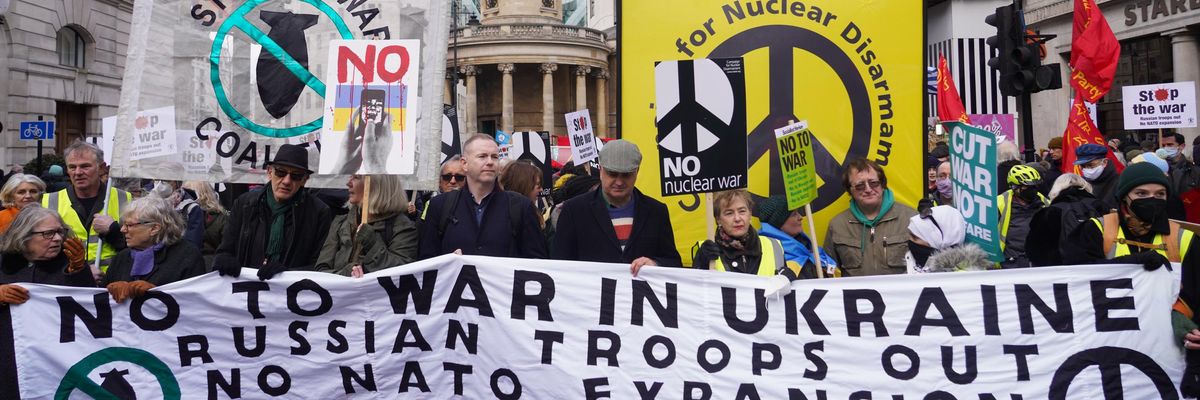Amid Moscow's thermonuclear saber-rattling during Russia's invasion of Ukraine, state parties to the Treaty on the Prohibition of Nuclear Weapons on Thursday condemned "any and all nuclear threats" while calling on more countries to sign and ratify the landmark accord.
"This is the strongest condemnation of nuclear threats by a multilateral U.N. conference."
As the first Meeting of State Parties (1MSP) to the TPNW wrapped up in Vienna, the 65 countries that have signed and ratified the treaty issued a declaration and action plan unequivocally condemning threats to wage nuclear war, "whether they be explicit or implicit and irrespective of the circumstances."
The TPNW signatories committed to "further stigmatizing and delegitimizing nuclear weapons and steadily building a robust global peremptory norm against them."
"In the face of the catastrophic risks posed by nuclear weapons and in the interest of the very survival of humanity... we will not rest until the last state has joined the treaty, the last warhead has been dismantled and destroyed and nuclear weapons have been totally eliminated from the Earth," the declaration concludes.
Beatrice Fihn, executive director of the Nobel Peace Prize-winning International Campaign to Abolish Nuclear Weapons (ICAN), said in a statement that "this is the strongest condemnation of nuclear threats by a multilateral U.N. conference, and shows an unprecedented commitment by a global alliance of states, survivors of nuclear detonations, international organizations, and civil society to prevent nuclear war and eliminate nuclear weapons."
Masao Tomonaga, a survivor of the August 9, 1945 U.S. nuclear attack on Nagasaki, Japan that killed more than 75,000 people, said that "this political declaration is a very strong document, despite many difficulties we face."
"With this powerful document we can go forward, and all Hibakusha support this; it is a great document," Tomonaga added, referring to the Japanese word for atomic bomb survivor.
The declaration and action plan come after Russian President Vladimir Putin warned last week that his country could use nuclear weapons if its sovereignty is threatened.
With more than 11,000 nuclear warheads in their combined arsenals, Russia and the United States--the only nation to ever wage nuclear war--are the world's leading atomic powers.
Related Content
Demanding Global Ban, UN Chief Calls Nuclear Weapons a 'Recipe for Annihilation'
Brett Wilkins
Eighty-six nations have signed the TPNW and 65 have ratified the accord. Notably, none of the world's nine nuclear powers--China, France, India, Israel, North Korea, Pakistan, Russia, the United Kingdom, and the United States--have signed the agreement.




